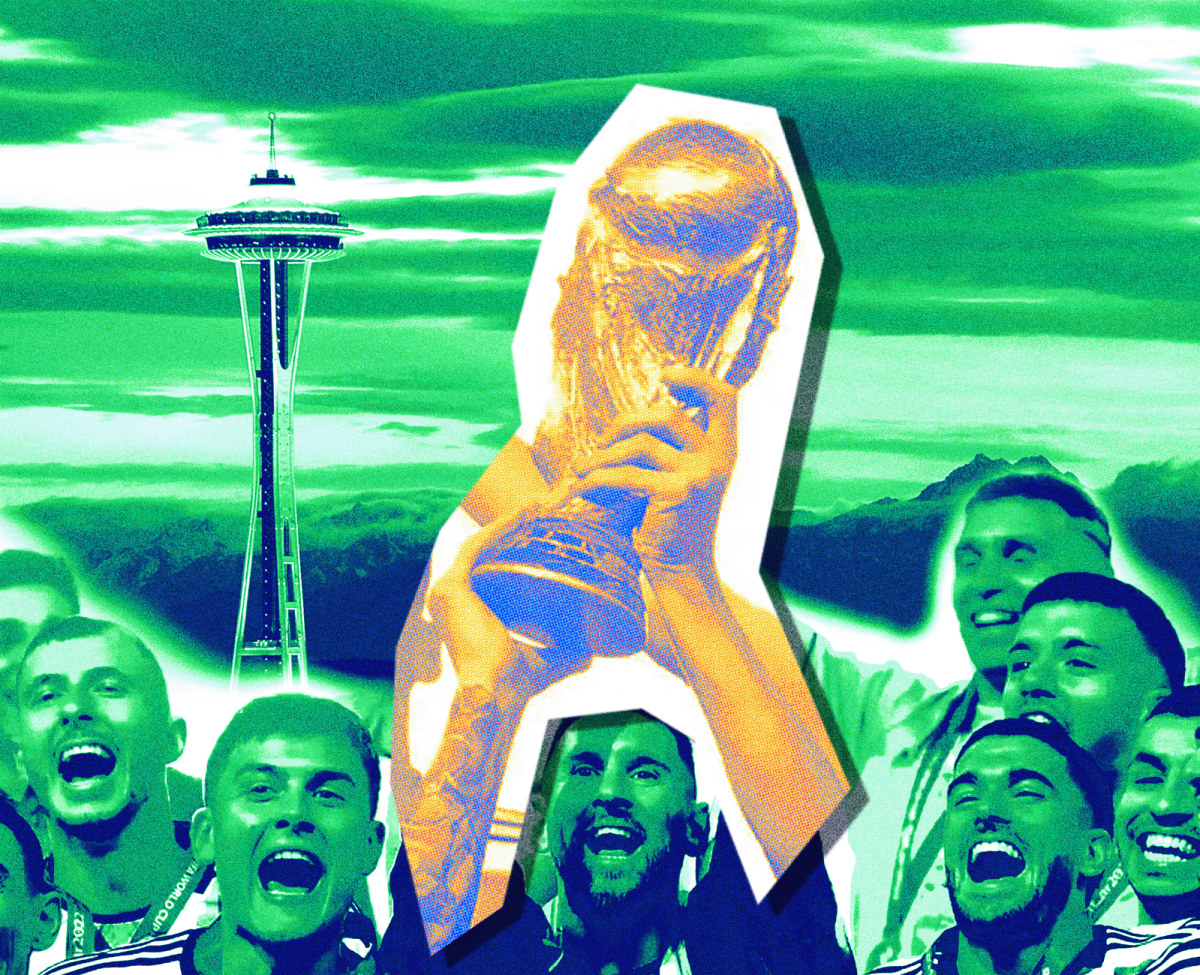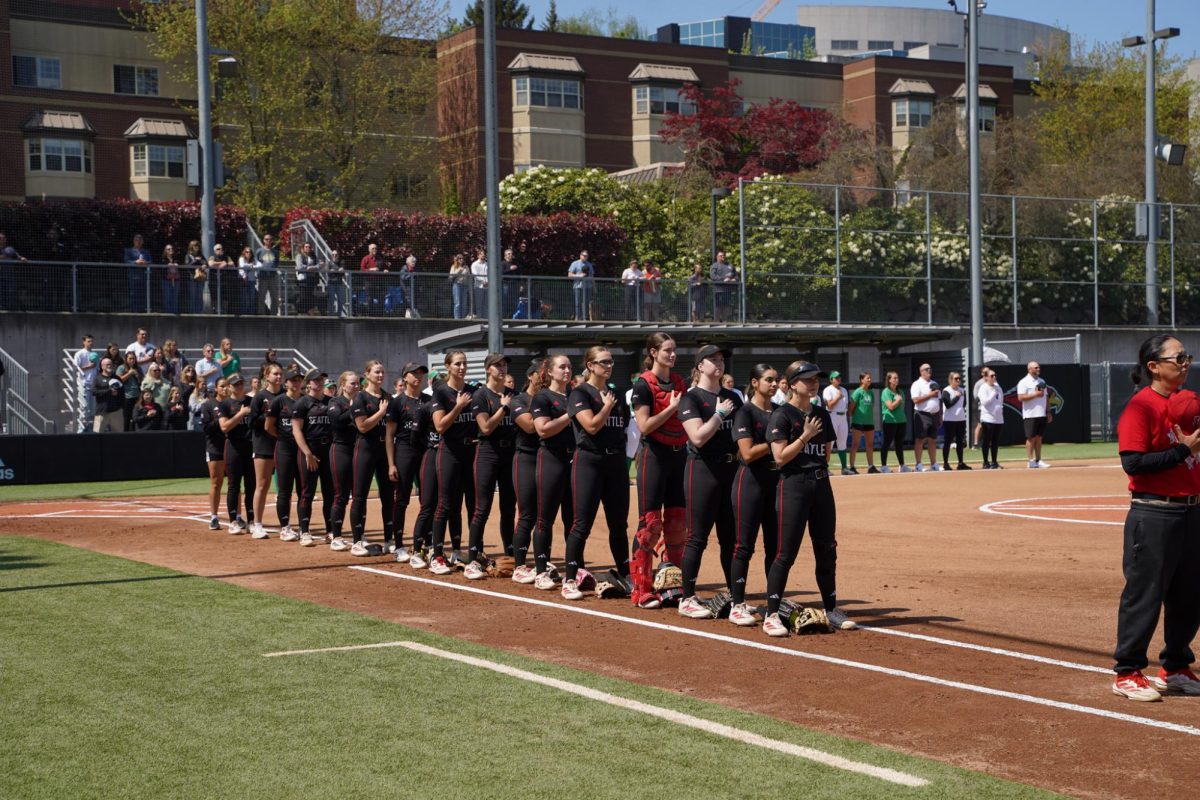The FIFA World Cup is less than 500 days away. The 2026 World Cup will be the biggest in its 126-year history, with 48 teams taking part in games and festivities across three different countries. The United States, Mexico and Canada will host matches in 16 different cities. For the first time, Seattle will be hosting six matches, four group stage matches and two knockout phase matches, all taking place at Lumen Field.
According to VisitSeattle, the six matches are expected to bring in $929 million in economic impact to King County. Over $100 million is coming from direct state and local tax revenue and the creation of over 20,000 full-time and part-time jobs are expected.
Local communities like SODO, Chinatown International District (CID), and Pioneer Square will be at the forefront of the event. With their proximity to the stadium district, these communities are set to receive an influx of visitors. Yet, the question of how these communities will be supported for a large-scale event like the World Cup is at the forefront of organizers’ minds.
The Seattle FIFA World Cup 26TM Local Organizing Committee (LOC), the main committee that drove the push for getting the World Cup to Seattle, recently announced the Small Business Initiative, an initiative that will help businesses connect to resources such as a small business playbook, business training and community assistance that will connect visitors to businesses in these areas.
In 2023, Seattle saw a small taste of what it was like hosting a major sporting event, with the MLB All-Star game coming to town. The event was expected to bring in over $50 million in economic impact to Seattle, though businesses in the Chinatown and Pioneer Square neighborhoods say they didn’t benefit from visitors.
Erin Goodman, executive director at the SODO Business Improvement Area (BIA), believes the LOC is beginning to address the specific needs of each community.
“They’ve [LOC] been really good about listening to the fact that each community wants to do it a little differently, still meeting their own needs, but that the neighborhoods might have slightly different needs,” Goodman said.
The SODO district has far fewer restaurant businesses than the CID and Pioneer Square, so much of the BIA’s focus will be on how they can support their large supply distributors while the World Cup is occurring.
“That’s why these conversations are starting early, it’s like they don’t know the blocks as well as we do, and we know the businesses and their needs,” Goodman said.
The LOC is also working directly with the Seattle Metropolitan Chamber of Commerce and its President and CEO Rachel Smith to ensure businesses are well-equipped.
“Investments in field infrastructure, practice facilities, and security will be necessary and create local opportunities for businesses and employees, alongside increased demand for hotels, restaurants and transportation,” Smith said. “The Chamber’s Community Business Connector program will share training sessions and opportunities for small business assistance, with plans to expand services statewide, particularly aiding minority business enterprises and BIPOC-owned businesses.”
Another feature on deck for the World Cup is the creation of an app. Alissa Bolla, business strategy manager at the Alliance for Pioneer Square, says the app is currently in beta testing.
“It’s like a Pokemon Go style, where you would go along and collect things to be entered to win merchandise,” Bolla said. “People are going to be driven to businesses to collect rewards.”
Bolla hopes the excitement around the World Cup will drive people back to Seattle, specifically the Pioneer Square neighborhood.
“There’s an opportunity to build something out of this, where people will come for years, to be able to have that touch point of the amount of history that’s taking place here is special,” Bolla said.
Like Bolla, many see this as an opportunity that goes beyond the event itself. With the projection of over $100 million in tax revenue, Visit Seattle’s SVP & Chief Sales Officer Kelly Saling sees far-reaching benefits for residents.
“Events such as the World Cup generate tax revenue that funds programs that benefit residents in the form of funding for improvements in education, transportation, environmental protection, economic development, and many other sectors,” Saling said.
Other concerns with such a large event have to do with the implementation of sweeps across the city for homeless people.
“Care providers down here are looking at what this is going to look like, so that it doesn’t appear that it’s being done just for [the World Cup], but that we are doing it now because it needs to be done, people need to be housed, not because there’s an event, but because that’s what is humane, is to get people into housing,” Goodman said.
In 2023 during the All-Star game, questions arose surrounding the city’s intentions behind the sweeps around the stadium area for homeless people. Both the SODO BIA and Pioneer Square representatives believe that more resources are becoming available for members of these communities but work must be done with real care.
“They are our neighbors, we’re familiar with a lot of them. We live with them every day,” Bolla said.
Seattle’s passion for the sport of soccer has brought the World Cup to the Emerald City, and with many questions still surrounding the summer of 2026 and beyond, the World Cup is expected to be a once-in-a-lifetime event that will be celebrated for decades to come. Fans can get a preview of the upcoming event with this summer’s FIFA Club World Cup. The Seattle Sounders will host three games at Lumen Field against top clubs like Atletico Madrid and Paris Saint-Germain.








